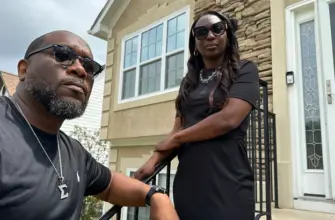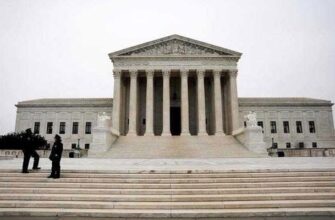Legal Battle Over Deported Maryland Resident Escalates
A tense legal showdown unfolded Friday as a federal judge sharply questioned government attorneys regarding the whereabouts of Kilmar Abrego Garcia, a Maryland resident and Salvadoran national, who was improperly deported to El Salvador.
The Situation: 29-year-old Abrego Garcia was sent back to El Salvador last month despite allegations that he is connected to the MS-13 gang. His legal team strongly disputes these claims, asserting he has no ties to the violent organization.
U.S. District Judge Paula Xinis expressed her frustration during a hearing after the Supreme Court upheld her previous order requiring federal officials to coordinate Abrego Garcia’s return to Maryland. She directly questioned DOJ attorney Drew Ensign about his location, but he admitted, “I do not have that info.”
“I’m not asking for state secrets,” Judge Xinis stated firmly. “I’m asking where one man is. The government was prohibited from sending him to El Salvador, and now I’m asking a very simple question: ‘Where is he?’”
The Supreme Court’s ruling acknowledged the error in Abrego Garcia’s deportation. It stated that “The United States acknowledges that Abrego Garcia was subject to a withholding order forbidding his removal to El Salvador, and that the removal to El Salvador was therefore illegal.” The court further mandated that the government “facilitate” his release from custody and ensure his case is handled as if he had never been unlawfully deported.
Ensign asserted the government’s intention to comply with the Supreme Court’s order, but conceded it was “unclear” what steps had been taken thus far. Judge Xinis responded sharply, stating, “That means they haven’t done anything.”
A disagreement arose over the interpretation of the court’s directive. Ensign suggested the government understood the ruling to require only a review by the executive branch, while Judge Xinis insisted on proactive steps to expedite Abrego Garcia’s return.
“I hear you and disagree,” she responded.
The judge demanded daily updates “from a person with direct knowledge” of the situation, indicating she would issue an order outlining this requirement. She emphasized the urgency, stating, “My message…is, if you can do it, do it tomorrow. I don’t understand why it can’t be done.”
Ensign characterized the orders as “impractical,” but reiterated the government’s commitment to adhering to the Supreme Court’s ruling.
White House Press Secretary Karoline Leavitt addressed the situation during a briefing, especially relevant given El Salvador’s president is visiting the White House next week. She clarified that the administration’s responsibility is to *facilitate* the return, not necessarily effectuate it directly.
Background: Abrego Garcia was arrested in Baltimore on March 12 while working as a sheet metal apprentice and after picking up his five-year-old son, who has autism and other disabilities. He initially fled El Salvador in 2006 to escape gang violence, which included threats of kidnapping and death against himself and his family.
After illegally entering the United States in 2011, he resided with his brother in Maryland, where his brother is an American citizen.
- 2006: Abrego Garcia began facing threats from gang members to coerce his parents into paying extortion fees.
- 2011: He illegally entered the United States and established residency in Maryland.




